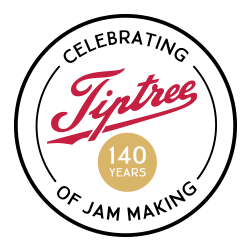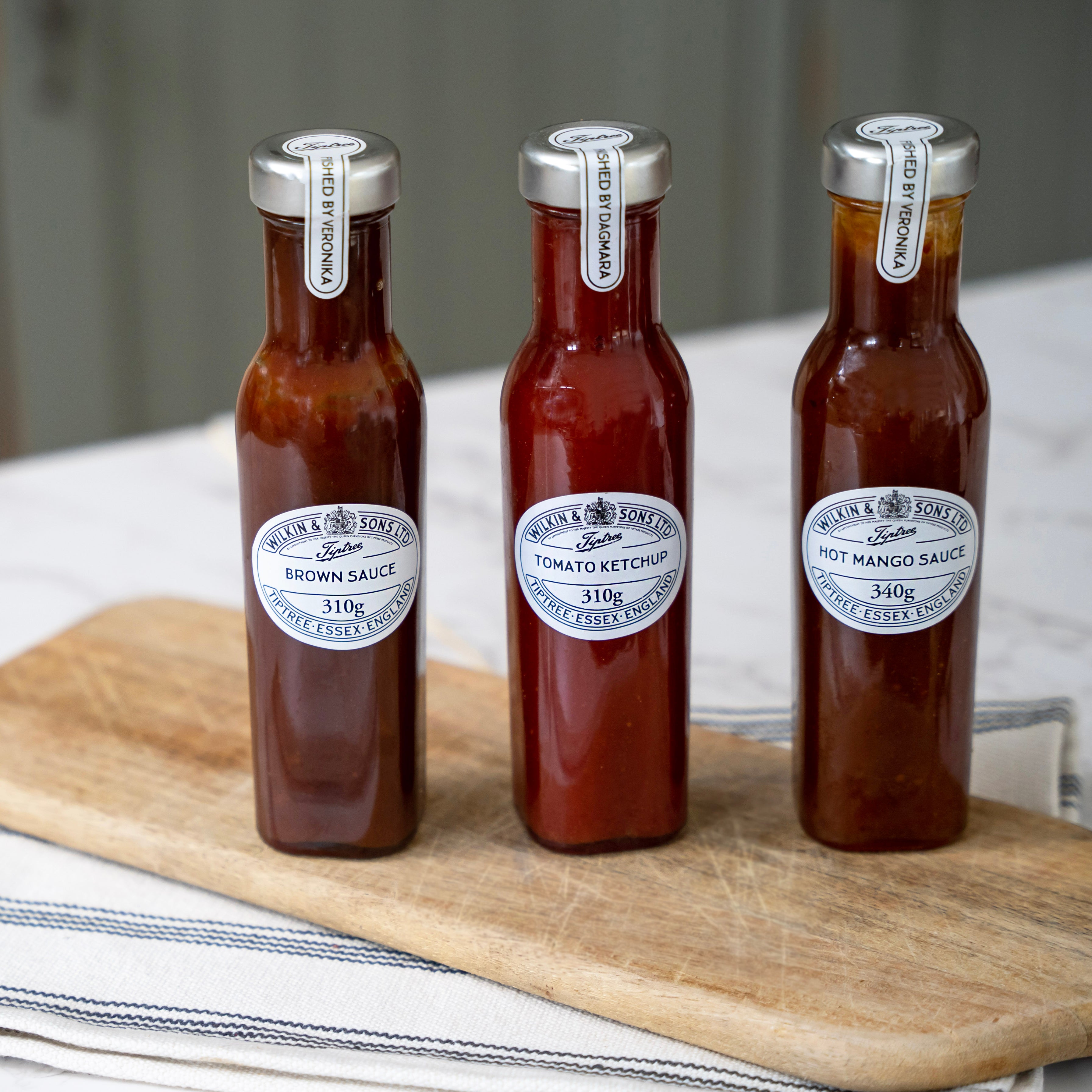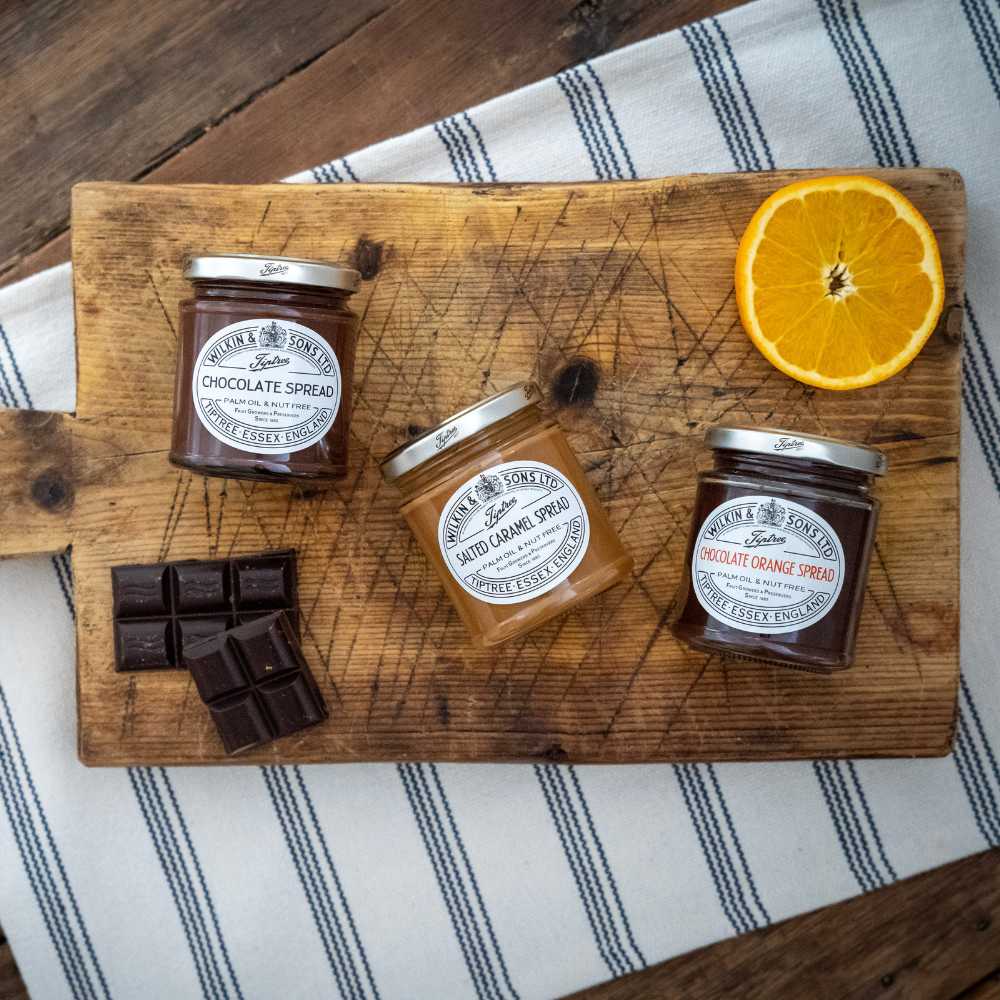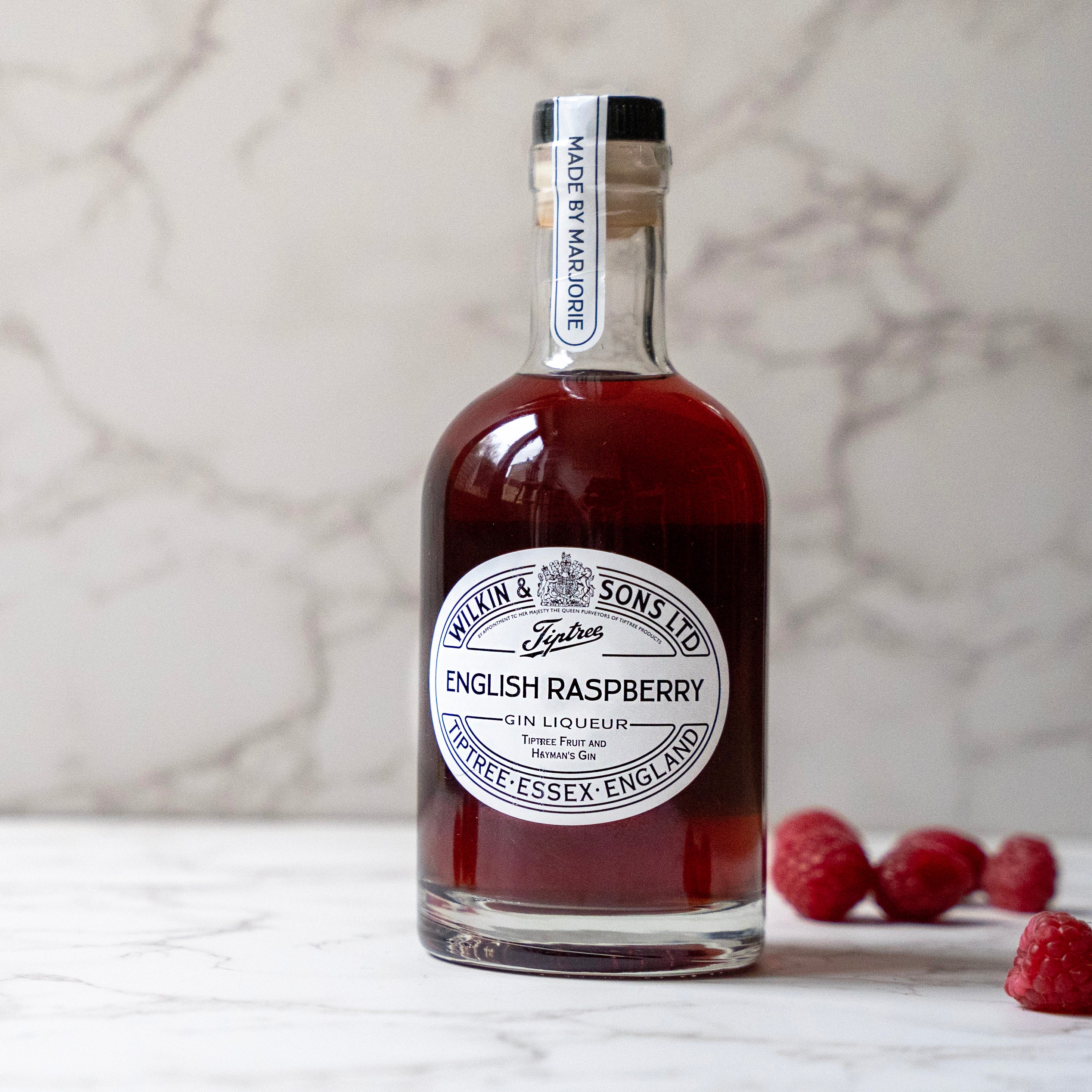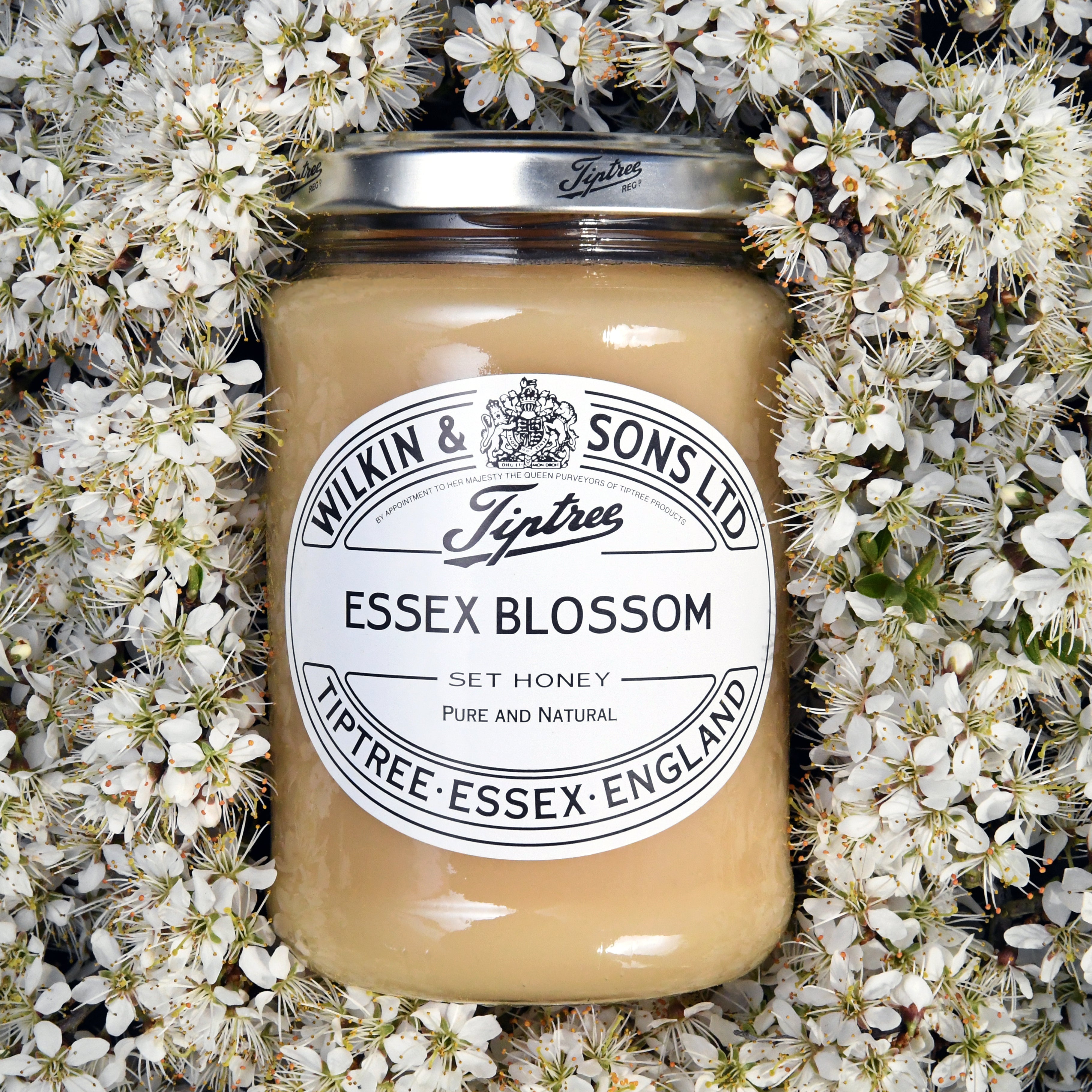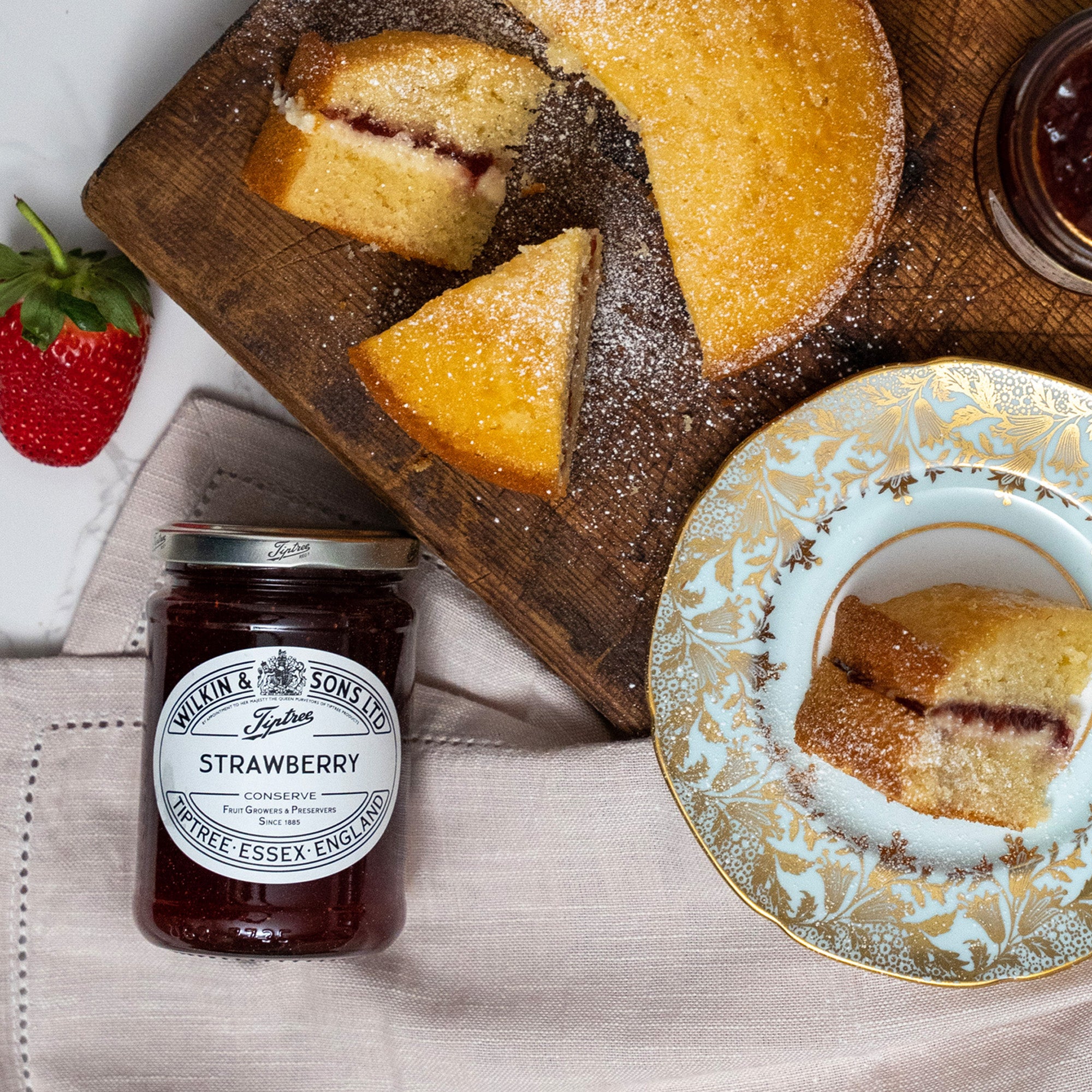WILKINS HAVE FARMED IN TIPTREE FOR ALMOST 300 YEARS.
Farmers have to think long-term, suffering bad years with good grace, in return for better years with plentiful crops and the finest English fruits that have slowly ripened in the warmth of the Essex countryside.
Strawberries are just one example of Tiptree thinking: modern varieties may have more consistent shape, size and colour, but Tiptree strawberries are also grown for their flavour and texture. Tiny, intensely flavoured Little Scarlets are grown entirely on the ‘Tiptree’ farms and are processed within hours of picking. Wilkin and Sons are almost certainly the only large-scale growers of this wonderful strawberry anywhere in the world.

The weather plays a big part in determining yield and flavour. Late frosts can destroy the blossom overnight and every frostbitten flower is another fruit lost. Ideally there will be plenty of light rain and lots of warm (but not hot!) sunshine to ripen the fruit to perfection.
Almost predictably for such an unusual business, Tiptree takes an unorthodox approach to farming. The arable crops needed for rotation with the fruit are tended by neighbouring farmers whilst Wilkin and Sons stick to what they do best – growing fruit. They grow all the most popular fruits such as strawberries, plums and Morello cherries but they also grow medlars, quinces, damsons and mulberries. The mulberry orchard was planted before jam-making began at Tiptree and a young tree can take up to twenty-five years to to bear volume fruit. Now that does require long-term thinking and commitment!
The ‘Tiptree’ farm grows Timperley Early rhubarb and here’s a thing: rhubarb isn’t a fruit, it’s a vegetable, but still allowed to be used in jam-making. Just imagine - vegetable crumble! That brings to mind another strange fact: the strawberry is not truly a fruit either.

Unorthodox thinking extends to inviting others to enjoy the countryside too. Public footpaths criss-cross the fields with signs to explain what’s happening and what to look out for. All Tiptree asks is that visitors, respect the countryside and keep off the crops.
The environment is in the news a lot these days; it’s important that we take care of what we have and do what we can to protect and improve the environment. Here too, Tiptree is at the forefront, farming to LEAF (Linking the Environment and Farming) standards. Micro-pulse-irrigation systems ensure water isn’t wasted (all of which is carefully controlled by Andrey and his team via their iphones). We also grow so table top strawberries, grown at waist height so they’re easy to tend and pick. Pipes and energy cables run under the fields and reservoirs recycle water used for jam-making and rainwater for use during the drier months.
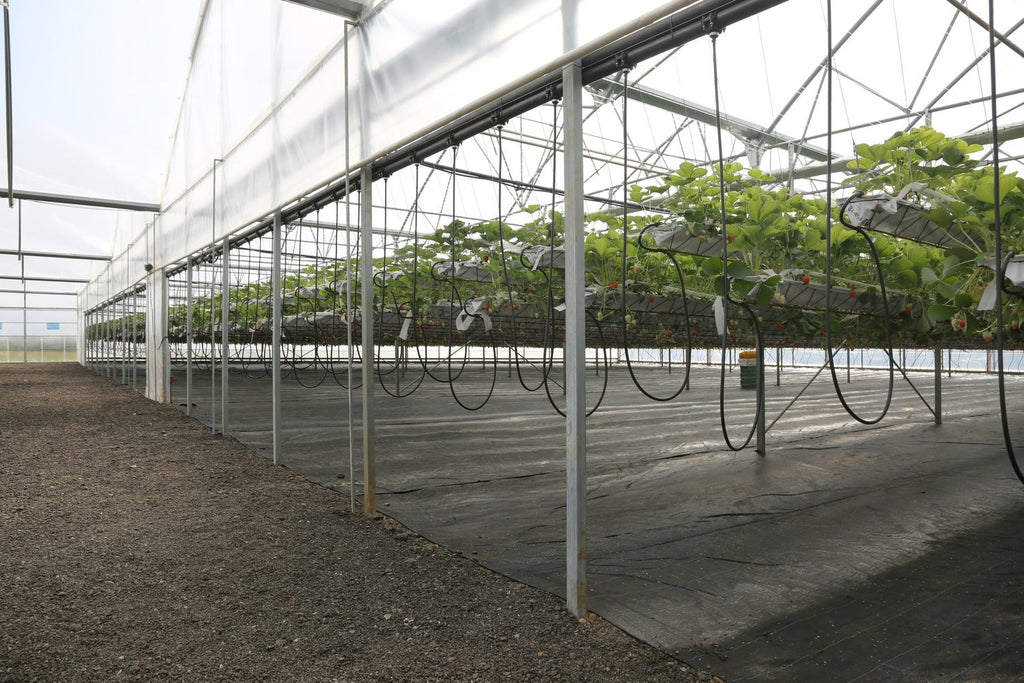
Each year, the ‘Tiptree’ farms welcome visitors to Open Farm Sunday. It’s a chance to meet the farmer, take a guided tour of the farms and try some of the produce that’s grown in and around the Essex village of Tiptree. Up to 2,000 people come along for that treat and at the height of the season, there’s The Strawberry Race where pickers compete to collect the most top quality fruit in one hour, with proceeds from the event going to charity. Often sports and TV personalities such as Tom Chambers, Vicky Michelle and Jimmy Doherty join in the fun.
The farms have become part of a nationwide scheme to use farms as an educational facility, explaining in easy terms about the countryside and why it’s important for our future.
Look out for the fast-growing tractor and farm implement displays when you visit Tiptree. The County 4WD tractor is rather special and spent almost the whole of its working life on the Tiptree farms, doing the heavy work that was too much for the grey Fergies (TE20s) that were used for half a century. Take a look at the grey Fergies on display and try to work out how they were started without a key – it’s a novel idea, brought about by Harry Ferguson almost being run over one day by a tractor being started.
AN EARLIER FARM LIFE
Like most types of agriculture, fruit farming can be a tough life; easier today than it was, but still demanding of hardy types to put up with the lazy Essex winds (they blow through you rather than going round). Farm workers sometimes had plastic bread bags over their socks to keep out the cold and damp that permeated even the newest Wellington boots. Hand-pruning the fruit trees took the whole winter. Standing in a bleak, grey orchard in a snowstorm is a harsh way to earn a living but by springtime, when the uniform rows of neatly shaped trees are swathed in white blossom, it is immensely satisfying.

At the coldest times, the mid-morning break could not come soon enough. Farm workers would huddle together, sheltering in ditches from the driving wind and rain. When it snowed so much that none could stay out in the fields, they were allowed into the warmth of the jam factory to help wash and prepare fresh Seville oranges, delivered overland from Spain ready for the marmalade season.
In the summer months, the fruit pickers descend on the farm and the fields are splashed with their bright and colourful clothing. Fruit picking required dextrous hands and strawberry picking especially can be hard work. Often the pickers are in the fields by five o’clock in the morning to try and avoid the worst heat of the day.
In the nearby International Farm Camp, overseas students relax with a cold beer or a game of football! Foreign students have been visiting Tiptree since the early 1950s so the village has become accustomed to their arrival in spring and the sense of anticipation they bring for the summer season to come.
FRUIT FARMING IS A SERIOUS BUSINESS
At times difficult, often frustrating but always ultimately satisfying, life in Tiptree without fruit farming is unthinkable. Today, the farm grows fruit not only for the preserve-making business but also has a blossoming trade in fresh fruit.
The range of different fruits and fruit varieties is growing all the time as ‘Tiptree’ experiments with ways to get the best from the land. Experimental ideas are adopted and there is clear recognition that farming, in sympathy with the countryside can make good sense – broad headlands, newly planted hedges and wild-flower meadows all have a part to play in the success of fruit growing at Tiptree.

In 2016 we added a pioneering 'New Growing System' to the farm amongst the first in the UK to adopt this innovative way to grow strawberries.
